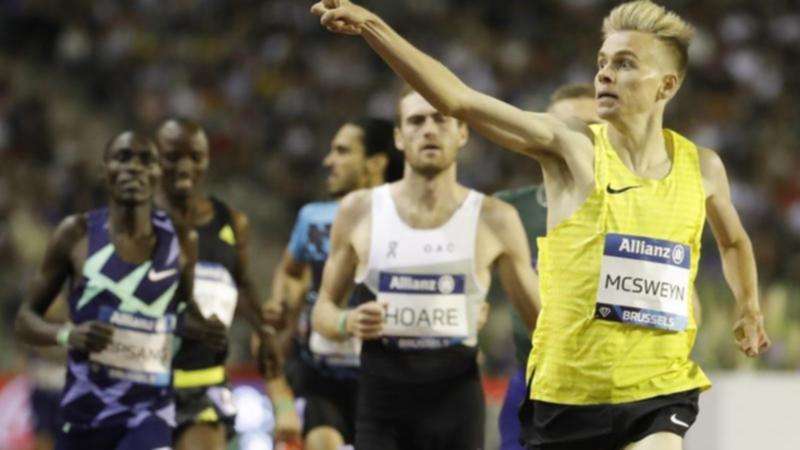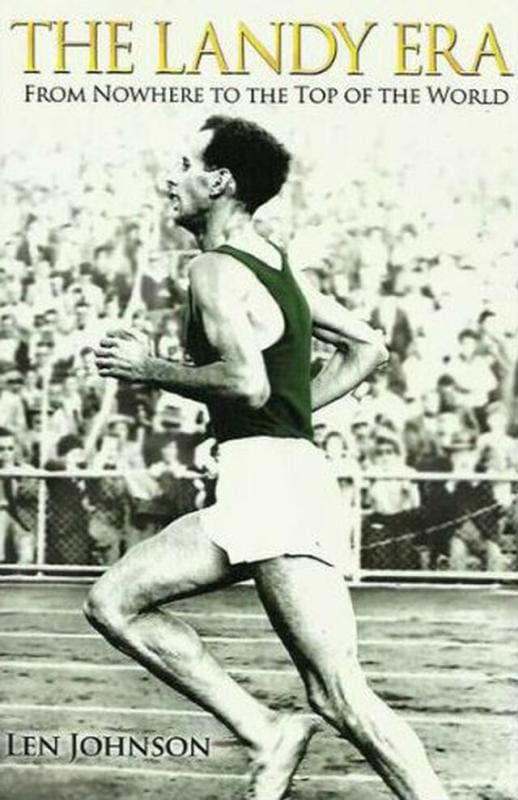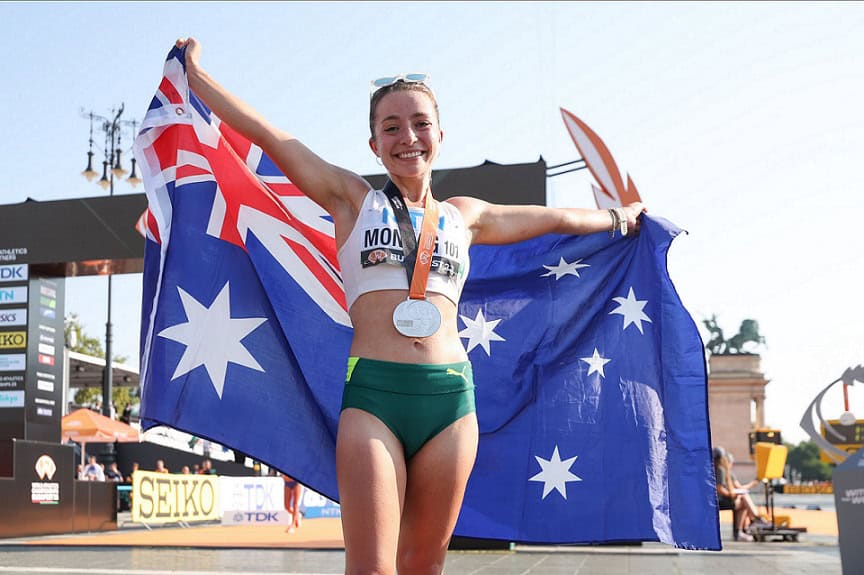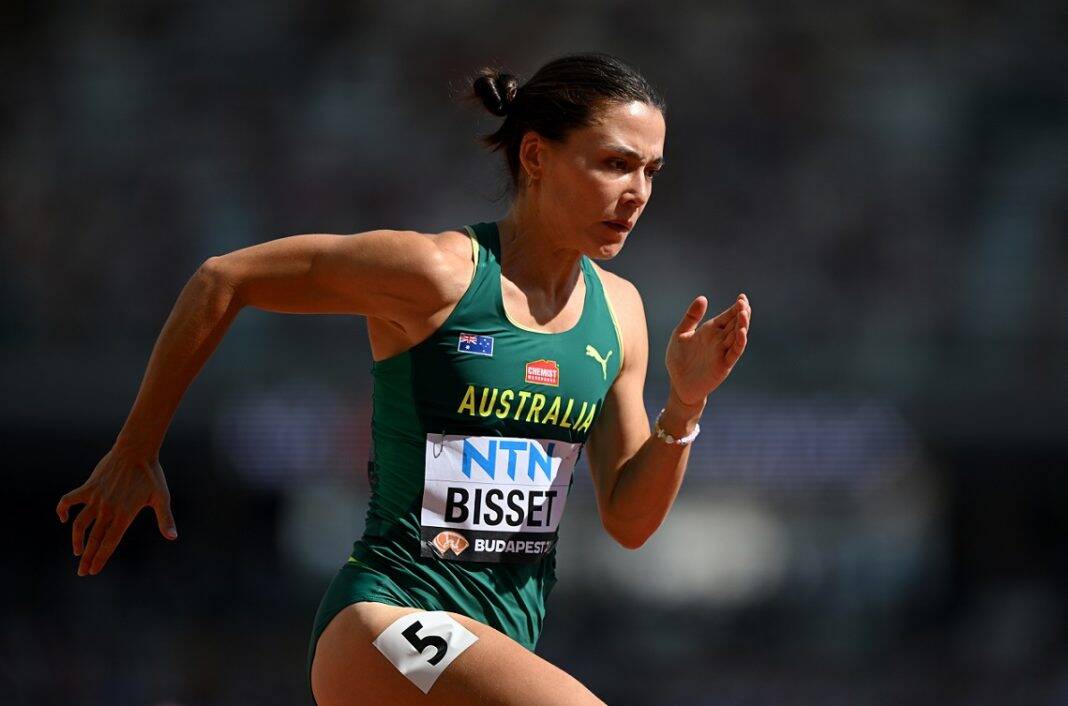By Len Johnson
Catriona Bisset ended a 49-year drought as she was named in the world top-10 in Track&Field News magazine’s annual rankings for 2023, one of ten Australian athletes to garner a top-10 ranking.


Two years later, Rendina ran 1:59.0 (hand-timed) at the 1975-76 Victorian championships setting an Australian record which stood for 43 years until Bisset ran 1:58.78 in the London Diamond League meeting. With multiple (which these days seems to mean any number greater than one) take-downs of Rendina achievements, Bisset has set herself up as somewhat of an 800 drought-breaker.Many had tried and just as many failed when it came to Rendina’s record. Tamsyn Lewis came closest with 1:59.21 in the Sydney 2000 Olympic domestic season. She eclipsed Rendina totally in volume of performances – umpteen sub-2s as against just one – and her performance in winning a world indoor title compares favourably to a Commonwealth win, but she could never quite get past her.

Rendina, Lewis and Bisset also share the unwanted distinction of never (not yet in the case of Bisset) making an Olympic or (outdoor) world championship final. Rendina and Lewis each missed a final by just one place; Bisset has been a finalist at a world indoor championships but not gone beyond the semis outdoors.

Unsurprisingly then, there have been limited appearances by Australian women in T&FN’s annual rankings. Adding Bisset in, just six Australian women have been ranked top-10 on a total nine occasions. Rome 1960 Olympic silver medallist Brenda Jones leads the way with a no.2 ranking; Perth 1962 Commonwealth gold medallist Dixie Willis was ranked three times – seventh in 1960, first in 1962 when she also set world records for 800 and 880 yards, fourth in 1963; Judy Pollock had a fifth in 1966 and, with world records at 800 and 880, a second in 1967; Cheryl Peasley was ninth in 1969 as was Rendina in 1974.

Throw in Lewis and Bisset and that’s about your history of Australian women’s 800.
Enough women’s 800, let’s go to the 1500 instead where Jess Hull ranked eighth. It was Hull’s second straight appearance in the top-10. Linden Hall cannot have been far away from joining her.


All three should be back to top form in 2024 (fingers crossed).
The total of 10 ranked athletes is two down on 2022’s 12 which, in turn, was two down on the 14 of 2021. Nonetheless, a double-figure number reflects a high level of performance across events and compares well with historical results.

Australia’s six Budapest medallists all ranked high though unlucky non-medallist Matt Denny, fourth in the discus, was our highest ranked male athlete at fourth place. His Diamond League final win in Eugene, beating the world gold and silver medallists Daniel Stahl and Kristjan Ceh, was arguably the male Australian performance of the year. Almost, but not quite, enough to jump him over world bronze medallist Mykolas Alekna into third spot.
Denny’s fourth is the highest-ever ranking by an Australian male discus thrower, and his fourth straight appearance, one more than Benn Harradine our only other ranker ever in discus.
Pole vault equal-bronze medallist Kurtis Marschall was ranked sixth overall.
Nina Kennedy’s shared gold in the pole vault with Katie Moon was not enough to secure no.1 spot over the American. She was ranked number two as was high jump silver medallist Nicola Olyslagers and javelin bronze medallist Mackenzie Little.
Head-to-head record justified Little’s elevation over the Budapest silver medallist but a thin season saw both defending high jump champion Eleanor Patterson and 20km walk silver medallist Jemima Montag pushed one place down on their world championship result. Patterson ranked fourth and Montag third.

Two-time world champion Kelsey-Lee Barber was Australia’s final top-tenner, ranking seventh in the javelin.
Besides the male middle-distance trio of Bol, Hoare and McSweyn the only other Australian ranker from 2022 to drop out of their event top-10 was long jumper Brooke Buschkuehl.
If you haven’t had quite enough stats, here’s a couple more on Australia’s 2023 rankings:
Nicola Olyslagers and Eleanor Patterson have had a see-saw battle in the women’s high jump ranking (Olyslagers first) third and fifth in 2021 when Olyslagers took the Olympic silver medal, fourth and second in 2022 when Patterson won the gold medal, and second and fourth in 2023 when Patterson was silver medallist and Olyslagers took the bronze.
Despite Kelsey-Lee Barber’s two world championship gold medals (Doha 2019, Eugene 2022) Australia has never had a number one ranker. Joanna Stone, silver medallist in Athens in 1997, and Barber in 2019 and 2022 both ranked no.2. Atlanta 1996 Olympic silver medallist Louise Currey fared even worse with the rankers coming in at no.6.
*Footnote: Nine Australian women have bettered two minutes for 800 metres. In chronological order: Charlene Rendina, Judy Pollock, Margaret Crowley, Tamsyn Manou, Madeleine Pape, Catriona Bisset, Linden Hall, Abbey Caldwell and Carley Thomas. Susan Andrews also broke two minutes, in a mixed race.
